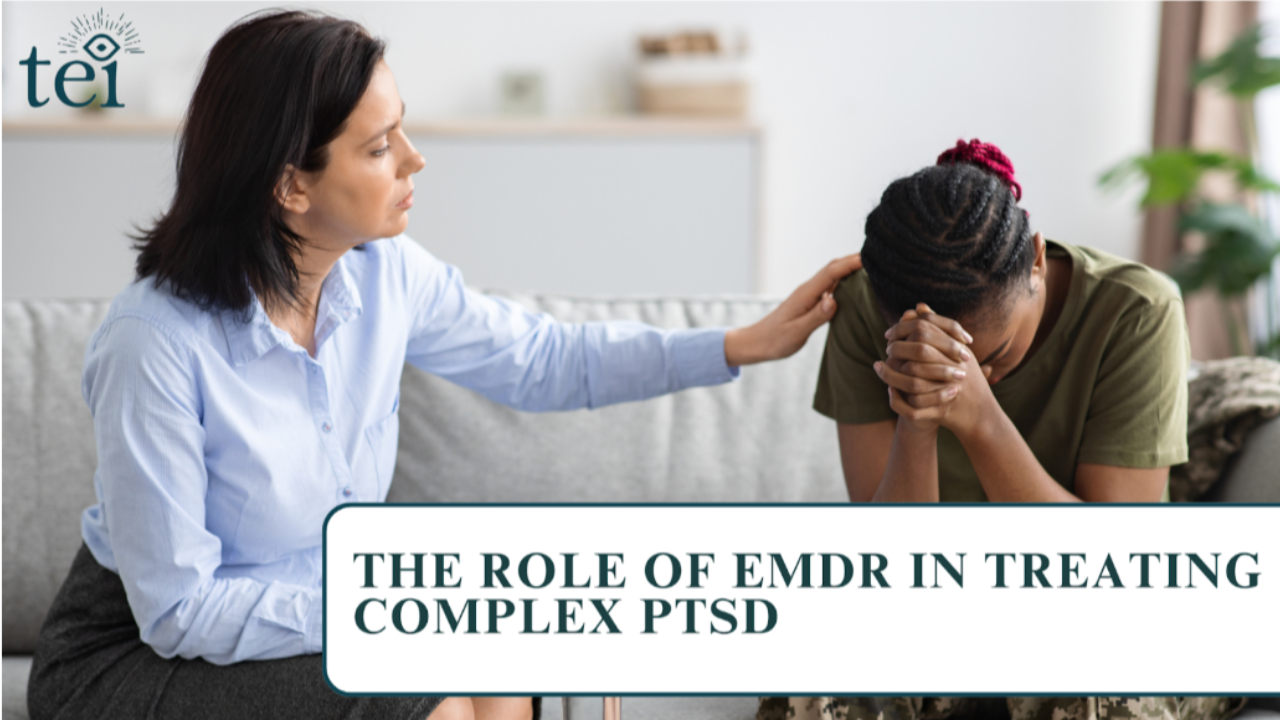The Role of EMDR in Treating Complex PTSD
Apr 21, 2025
Words: 547 Reading Time: 2.73 mins
Complex Post-Traumatic Stress Disorder (C-PTSD) is a severe condition resulting from prolonged or repeated exposure to trauma, often in childhood or abusive relationships. Unlike standard PTSD, C-PTSD affects individuals with multiple, ongoing traumatic experiences and can result in emotional dysregulation, negative self-beliefs, and interpersonal issues.
Traditional therapy may not always address the multifaceted nature of C-PTSD, making EMDR (Eye Movement Desensitization and Reprocessing) therapy a valuable approach. This therapy is designed to help individuals process and heal from trauma, significantly reducing the emotional charge attached to distressing memories.
How EMDR Helps with Complex PTSD
For those with C-PTSD, EMDR can target various aspects of the trauma simultaneously, making it highly effective. Instead of focusing on a single traumatic event, EMDR works on the broader range of memories, processing them in a way that reduces their emotional impact.
1. Addressing Multiple Traumas
C-PTSD involves layered, complex traumas. EMDR helps break these down into manageable parts, enabling individuals to process each layer without becoming overwhelmed.
2. Shifting Negative Beliefs
People with C-PTSD often develop deep-seated negative beliefs about themselves, such as feelings of worthlessness. EMDR targets these beliefs, helping individuals replace them with more positive self-perceptions.
3. Improving Emotional Regulation
C-PTSD often causes emotional dysregulation. Through EMDR, individuals learn to process trauma in a way that enhances emotional control, helping them respond more appropriately to triggers.
Research Supporting EMDR for C-PTSD
Studies have shown EMDR’s effectiveness in treating complex PTSD. Research published in the Journal of EMDR Practice and Research and supported by organizations like the International Society for Traumatic Stress Studies has demonstrated how EMDR significantly reduces PTSD symptoms in individuals with complex trauma.
One case study involved a patient with childhood abuse-related C-PTSD. After several EMDR sessions, the individual reported significant improvement in emotional stability, reduced flashbacks, and an enhanced sense of hope. Such case studies demonstrate the lasting impact of EMDR in treating C-PTSD.
Why Choose EMDR?
EMDR’s unique ability to process trauma without the need for verbalizing every detail makes it ideal for individuals with C-PTSD. It doesn’t overwhelm the individual with re-traumatizing experiences, making it more accessible and effective for long-term healing. It also offers quicker results compared to traditional therapies.
For those struggling with complex PTSD, EMDR offers a proven, effective solution. It targets the root causes of trauma, alleviates negative self-beliefs, and promotes emotional healing. With research and case studies supporting its efficacy, EMDR is a vital treatment method for those seeking relief from complex trauma.
Interested in exploring how EMDR therapy can help with complex PTSD?
Visit Therapist Education Institute for more resources and training on trauma recovery.


